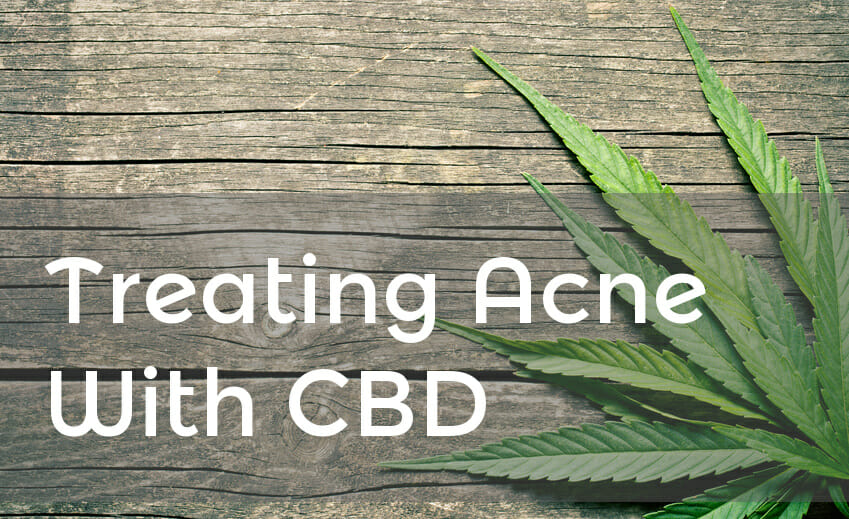So many of us deal with acne at some time in our lives. It’s the most common skin ailment. According to the National Institutes of Health (NIH), about 80% of people between the ages of 11 and 30 have outbreaks of acne at least occasionally. For some people, however, the disorder continues to rear its ugly head into their 40s and 50s.
Acne mainly erupts as a result of increased sebum. Sebum is a fatty substance manufactured by the sebaceous glands just under the skin that are connected to hair follicles. The sebaceous glands empty onto the skin via hair follicles. When the glands become overactive (because of hormones and other factors), blockages of sebum and dead skin cells happen. That, in turn, triggers an immune reaction, which causes inflammation and sometimes infection.
Although acne is not usually a serious health condition, it can cause significant emotional distress and permanent scarring of the skin. Fortunately, products with cannabidiol (CBD) can help. Research has concluded that CBD can be beneficial for various skin problems, including acne.
- Helps Regulate Skin Functions
CBD penetrates the skin readily and affects the body’s endocannabinoid system (ECS). Besides the ECS’ role in regulating physiological processes (such as pain, mood, sleep and digestion), research has indicated it also helps maintain balance across certain skin functions.
- Decreases Skin’s Sebum Production
Shown to reduce sebum (oil) production, CBD can help minimize acne outbreaks. CBD inhibits secretions by the cells that secrete sebum (called “sebocytes”). It does this by activating the cells’ ion channels, which facilitates the flow of calcium to the sebocytes. That, in turn, suppresses lipid synthesis (a process with a known connection to causing acne).
- Acts as an Antibacterial Agent
CBD has antibacterial properties that can help fight acne. There’s even ongoing research in progress to study the use of CBD to fight MRSA and other drug-resistant bacteria.
- Fights Inflammation
Cannabinoids have anti-inflammatory effects that can help decrease pain and redness. Research results suggest that CBD may suppress a pro-inflammatory cytokine connected to causing acne. Other skin conditions for which CBD has also been shown to help ease inflammation include allergic contact dermatitis, rosacea and atopic dermatitis.
- Decreases Pain
CBD interacts with the endocannabinoid system to help reduce the pain caused by the inflammation experienced with acne. The National Center for Biotechnology Information (NCBI) of the U.S. National Library of Medicine shares, “results strongly suggest that CBD’s universal sebostatic action is accompanied by substantial anti-inflammatory effects, which would be very much desired in the clinical treatment of acne vulgaris.”
- Reduces Erythema
Skin redness that is known as “erythema” happens when skin inflammation, injuries or infections cause increased blood flow in surface capillaries. A study found that cream with 3% cannabis seed extract decreased skin sebum and erythema. This shows promise for CBD as a potential treatment for acne and seborrhea (a common skin problem characterized by a red, itchy rash and white scales).
- Helps Wounds Heal
There has been many studies to evaluate topical CBD as a treatment for wounds. A small study conducted by Chelliah MP, Zinn Z, Khuu P and Teng JMC in 2018 found that topical CBD facilitated the healing of wounds associated with epidermolysis bullosa (a group of diseases that causes blistering skin) in pediatric patients. This demonstrates that CBD may also help skin heal from the irritation and lesions of acne.
CBD for Acne
CBD has some powerful properties that make it a viable force to be reckoned with in an acne-fighting regimen. Of course, before incorporating any products into your guest treatments, thoroughly review their ingredients, use instructions and possible contraindications. Also, keep watch for more emerging news about how CBD may help you resolve acne and other skin conditions.
References
https://www.ncbi.nlm.nih.gov/pmc/articles/PMC4151231/

